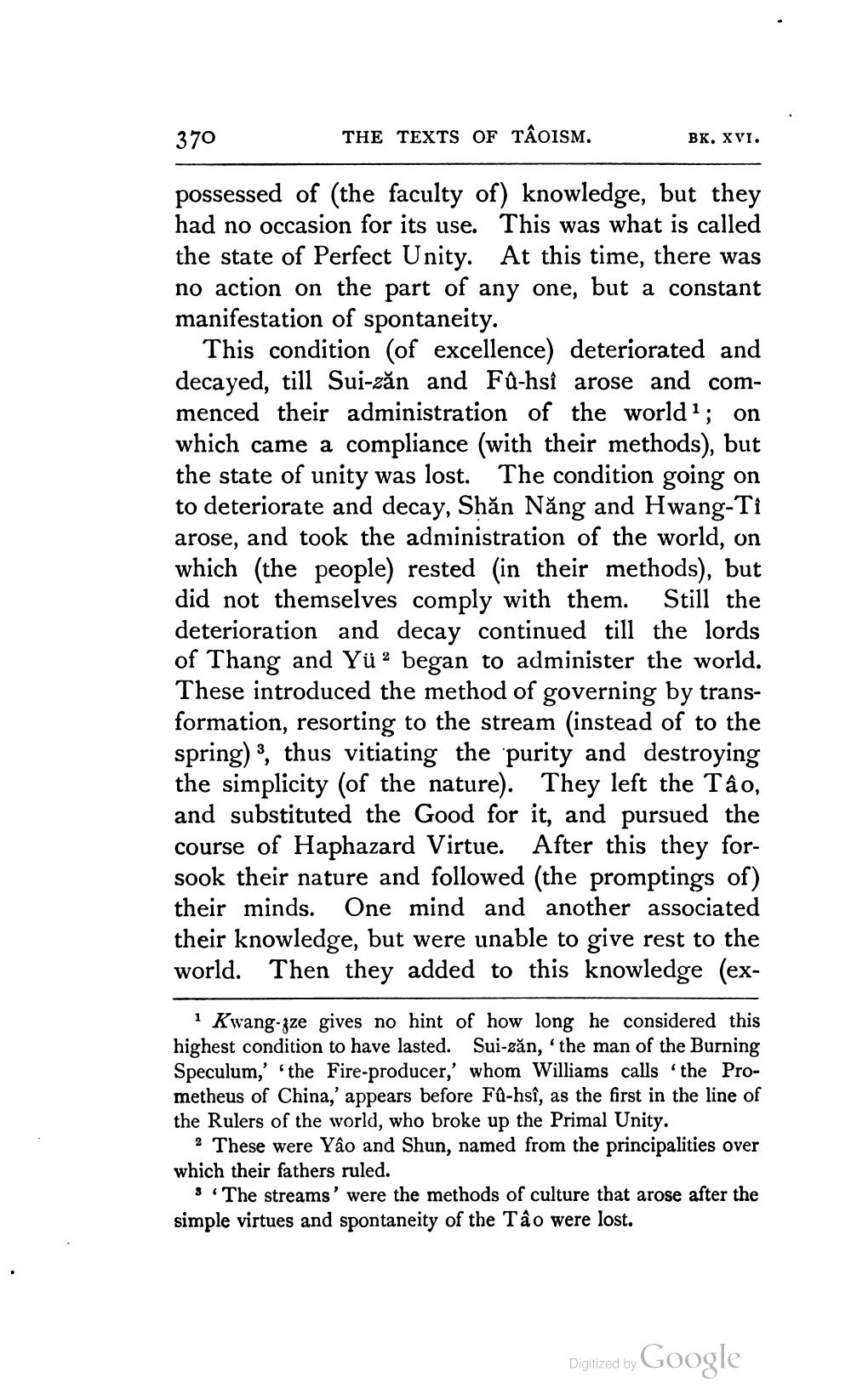________________
370
THE TEXTS OF TÂOISM.
BK, XVI.
possessed of the faculty of) knowledge, but they had no occasion for its use. This was what is called the state of Perfect Unity. At this time, there was no action on the part of any one, but a constant manifestation of spontaneity.
This condition (of excellence) deteriorated and decayed, till Sui-zăn and Fû-hsi arose and commenced their administration of the world'; on which came a compliance (with their methods), but the state of unity was lost. The condition going on to deteriorate and decay, Shăn Năng and Hwang-Ti arose, and took the administration of the world, on which (the people) rested in their methods), but did not themselves comply with them. Still the deterioration and decay continued till the lords of Thang and Yü 2 began to administer the world. These introduced the method of governing by transformation, resorting to the stream (instead of to the spring) 3, thus vitiating the purity and destroying the simplicity (of the nature). They left the Tâo, and substituted the Good for it, and pursued the course of Haphazard Virtue. After this they forsook their nature and followed (the promptings of) their minds. One mind and another associated their knowledge, but were unable to give rest to the world. Then they added to this knowledge (ex
1 Kwang-zze gives no hint of how long he considered this highest condition to have lasted. Sui-zăn, the man of the Burning Speculum,' the Fire-producer,' whom Williams calls the Prometheus of China,' appears before Fll-hsî, as the first in the line of the Rulers of the world, who broke up the Primal Unity.
2 These were Yâo and Shun, named from the principalities over which their fathers ruled.
3.The streams' were the methods of culture that arose after the simple virtues and spontaneity of the Tao were lost.
Digitized by Google




